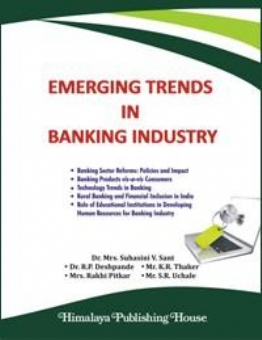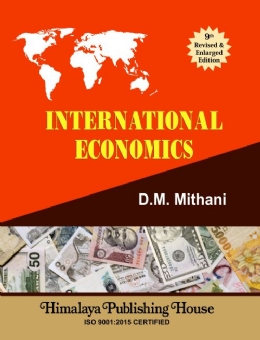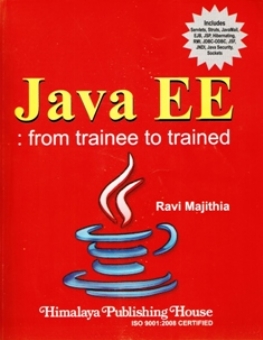The Indian banking system is subjected to tremendous pressure to perform or otherwise their very survival would be at stake. Information technology plays an important role in banking industry, as it would not only ensure smooth passage of interrelated transactions over the electric medium, but also facilitate complex financial product development. The application of Information Technology is heading towards a virtual banking. The banking operation at present has taken the shape of worldwide banking (WWB) in the line of world wide web (W.W.W.), which has eroded the identity of individual bank in the eye of the customer. In modern banking, expansion of bank branches, face-to-face contact between the banker and the customer has become the thing of the past. In present era, customer would prefer to do all his banking operations seating at office or at home.
As banking in India is becoming more and more knowledge based, human capital is emerging as the finest asset of the banking system, the collaboration between banking industry and educational institutions, providing the human capital to the industry, is of immense importance.
All these facets have brought banks an even more important entity in the global business community. Due to liberalisation, privatisation and globalisation, Indian banks are going global and many global banks have their own setups in India. In the days to come, banks are expected to play a prominent role in the economic development and the emerging market would provide ample business opportunities to harness.
Thinking through these vital issues is the main motivation for the theme of this conference “Emerging Trends in Banking Industry.”
The National Conference will explore the emerging trends in banking industry with reference to: (1) Banking Sector Reforms: Policies and Impact, (2) Banking Products vis-a-vis Consumers, (3) Technology Trends in Banking, (4) Rural Banking and Financial Inclusion, and (5) Role of Educational Institutions in Developing Human Resources for Banking Industry.
Contents :
Section – I : Banking Sector Reforms: Policies and Impact
1. Banking Sector Reforms and the Basel Norms
– Dr. Sameer Thakur
2. Reforms in the Banking Sector
– Prof. S.V. Mundhe
3. Corporate Governance in Banking Issues and Measures
– Mr. Prashant H. Bhagat
4. Indian Banks: Changing Perspectives and Emerging Challenges
– Dr. Jayashree Mehta
5. The Reformed System: Interest-free Banking in India
– Dr. Abdul Majid Ansari & Dr. Sirajuddin H. Chougle
6. Growth of the Indian Banking Industry: Challenges and Prospects
– Mr. Sandeep R. Poddar & Prof. Natika Jain
7. Banking Sector Reforms in India: Issues and Implications
– Dr. Ankush L. More
8. Factoring a New Banking Sector Reforms, Policies and Impact
– Dr. Nishikant Jha & Rajkumar R. Tiwari
9. Banking Sector Reform Policies and Its Impacts
– Prof. B.B. Suryawanshi
10. Income Diversification of Commercial Banks in India
– Somnath S. Vibhute
11. Banking Sector Reforms: Policies and Impact
– Mr. Rajpal K. Tayade
Section − II : Banking Products vis-a-vis Consumers
12. A Study on Bancassurance in Life Insurance in Mumbai City
– Dr. Navnita T. Megnani
13. New Innovative Products by Banks to Create Loyalty by Customer
– Mr. Mehul Chhatbar & Mrunalini Ravlekar
14. A Comparative Study on Housing Finance in Public Sector Banks and Private Sector Banks
– Ms. Sameera Sayed & CA Rupal Shah
15. Recent Trends in Banking Products and Services
– Prof. Ashok Somnath Gosavi
Section – III : Technology Trends in Banking
16. Emergence of Green Banking in India – A Step towards Environment Protection
– Mr. Nitin B. Acharya
17. Recent Trends in Indian Banking Sector
– Prof. Poonam Popat, Prof. Rupali Jain & Prof. Poonam Kakkad
18. Technological Trends in Banking Sector
– Mr. Subhash R. Uchale
19. Information Technology in the Banking Industry
– Mr. Pawar S.S.
20. Indian Banking Technological Aspects – Problems and Solutions
– Prof. Kailash D. Landge
21. Economic Reforms and Technological Change in Banking Industry
– Prof. S.B. Karande
22. Technology Trends in the Indian Banking Sector since 1991
– Ketan R. Thaker & Chandrakant T. Patil
23. Technology in Banking – New Face of Banking
– Mr. Nilendra Lokhande
24. The Technology Trends in Indian Banking and Challenges of E-banking in the Post-reform Period
– Mrs. Jayasree. V.
25. Technology Trends in Banking
– Mrs. Kavita Sandip Dangle
26. Technology Trends in Banking
– Mrs. Prachi Kadam
27. Behavioural Analysis: An Innovative Tool to Control Online Banking Fraud
– Mrs. Swapna Joshi & Ms. Poonam Vamza
28. Indian Banking: Moving towards Information Technology – Emerging Challenges and Possible Solution
– Saira Banoo Shaikh Shamshuzzaman & Vimala Kumar Nadar
29. Internet Banking − Its Challenges and Threats
– Gargi Dubey, Shivangi Tripathi
30. Electronic Banking in India
– Dr. R.P. Deshpande
Section – IV : Rural Banking and Financial Inclusion in India
31. Financial Inclusion: Integrating Financially Excluded
– Shri Arvind A. Dhond
32. Pushing Financial Inclusion: A Challenging Task Ahead
– Prof. Jitendra Ahrekar & Amit Prajapati
33. Microfinance Initiatives in Rural Area – With Special Reference to SBI of Dahanu Road Branch
– Prof. Rahul. S. Mohile
34. Rural Banking − Financial Inclusion: A Study of Dahanu Area
– Prof. Jasbir Kaur B. Lotey
35. Role of SHG in Financial Inclusion
– Dr. Anil N. Patil
36. Rural Banking and Financial Inclusion: The Case of India
– Mrunal Khobragade
37. Rural Banking and Financial Inclusion
– Dr. K.N. Ghorude
38. Rural Banking and Financial Inclusion in India
– Prof. Jyoti Bhatia
Section – V : Role of Educational Institutions in Developing Human Resources for Banking Industry
39. Human Assets in Public Sector Banks: Emerging Challenges
– Prof. Priti Aggarwal
40. Role of Educational Institutions in Developing Human Resources for Banking Industry
– Mrs. Monika Chandiwala & Mrs. Beena Chavan
41. Human Resource Management in Banking
– Ms. Supriya Karande






